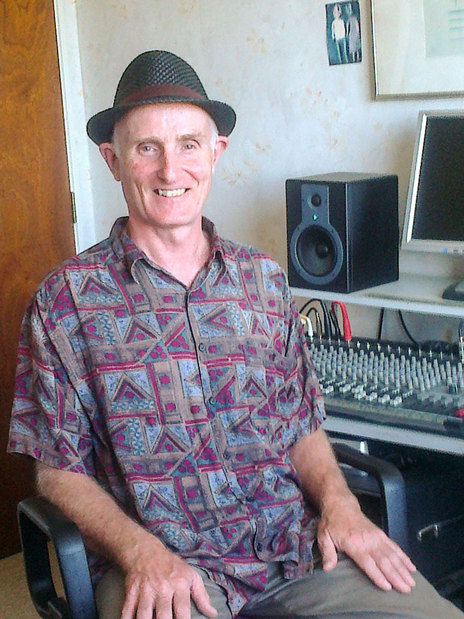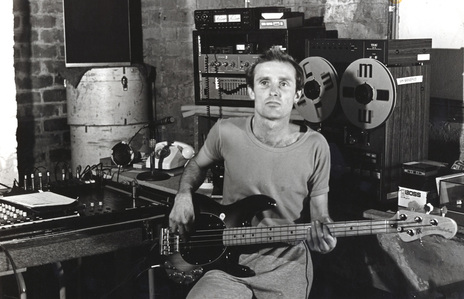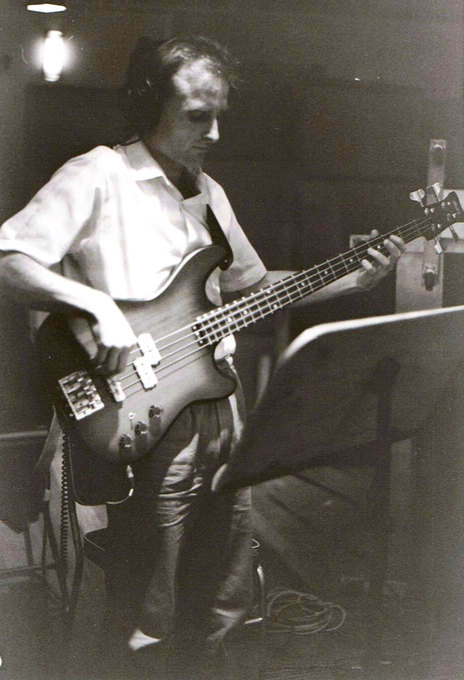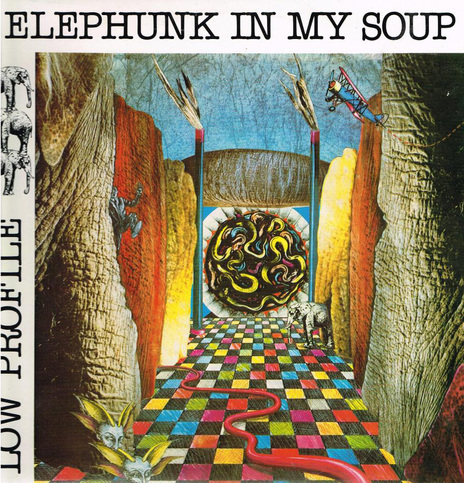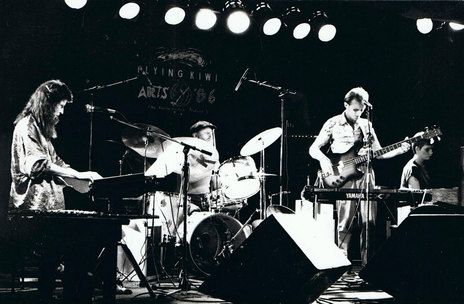Bowering achieved good notices because he was so unconcerned with commercial prerogatives
Bowering’s aura was defiantly from the hippie era, and while his musical values seemed at odds with the monochrome existentialist post-punk scene that dominated Wellington in the early 1980s, this intensely focused individual achieved good notices because he was so unconcerned with commercial prerogatives or being part of a movement. It had to be his movement. So much so that it almost seemed incidental when his single ‘Elephunk In My Soup’ got some chart action in 1984.
Born in the UK but raised in New Plymouth, Phil Bowering studied jazz improvisation under Colin Hemmingsen at Wellington’s Creative Music School, worked on film soundtrack sessions, and in 1980 formed a jazz-rock-fusion band, Outlines.
His next band, The Protons, were more hard-edged and punk-influenced, hence their support slot for Toy Love at Mainstreet in September 1980. The Protons went through several line-up and style changes, but before dissolving they managed to get some tracks down at Wellington’s short-lived Sausage studio, releasing a single ‘Lights Out’/‘Modern Homes’ through Mike Alexander’s Bunk label in 1981, for which they even made a video clip.
But it was a single under his own name in 1982, ‘Wolves Of Power’/‘Mutants (As A Result Of Nuclear Fallout)’, that got him noticed, as its subject matter fitted right in with contemporary political concerns. Originally part of The Protons’ repertoire, the politically charged songs were recorded back in 1980 when nuclear warship the USS Truxton was in port, and timed to coincide with the Truxton’s second visit to Wellington, an event that unleashed the fury of the nascent anti-nuclear movement in NZ.
Near the end of that same year, he formed Low Profile with drummer Steve Garden and a select group of guests (including the late Mike Farrell on guitar and Tom Ludvigson on keyboards), a project that peaked commercially with the amusing ‘Elephunk In My Soup’ in 1984, and continued with an album called Elephunkin’ in 1987, delayed by his overseas excursions. When it finally emerged, Elephunkin’ was an impressive mishmash of styles and strategies that employed some keen Kiwi talents, including backing vocalists Betty-Anne Monga, Annie Crummer and Debbie Harwood, along with guitarist Mike Farrell and saxophonist Brian Smith.
WHEN IT FINALLY EMERGED, ELEPHUNKIN’ WAS AN IMPRESSIVE MISHMASH OF STYLES
The Low Profile recordings were exceptionally detailed creations worked up in Garden’s own Basement Studios, and were never performed live. These included the 1983 Quiet Streets album, the 1986 12-inch single ‘The Cutting Edge’ (which one critic, possibly me, described as a “cauldron of swirling, whirling polyrhythmic funk”), and the 1987 Simon Says EP.
While Garden went on to a career in engineering and production, and is now manager of the Rattle label, Philbo has experimented with a wide range of styles and projects, and performed in a number of ensembles in the UK, Auckland and the Taranaki, where he now lives.
One of these projects was the 1987 album Moving Lines on Ode Records with Michelle Scullion on flutes and kōauau, the late Jann Rutherford on piano, Roger Sellers on drums, ambient and sampled percussion and Bowering on composition, bass and synthesisers. Originally recorded for the Concert Programme, it was inspired by the I Ching, and was an attempt “to create connections between the compositions and to dissolve the sense that the compositions are distinct and separate entities.”
Perhaps the ultimate exposition of Phil Bowering’s musical obsessions is represented by his independent 2004 release under the Potent Brew moniker, Psychedelia Groove, which rubs Laswell-style dubby basslines up against electronic interjections, jazz improvisations and world music influences.
--
Phil Bowering passed away in January 2024, after several years of health issues. His productivity after this profile was written is well covered in Gary Steel’s 2023 interview, published at Witchdoctor.
